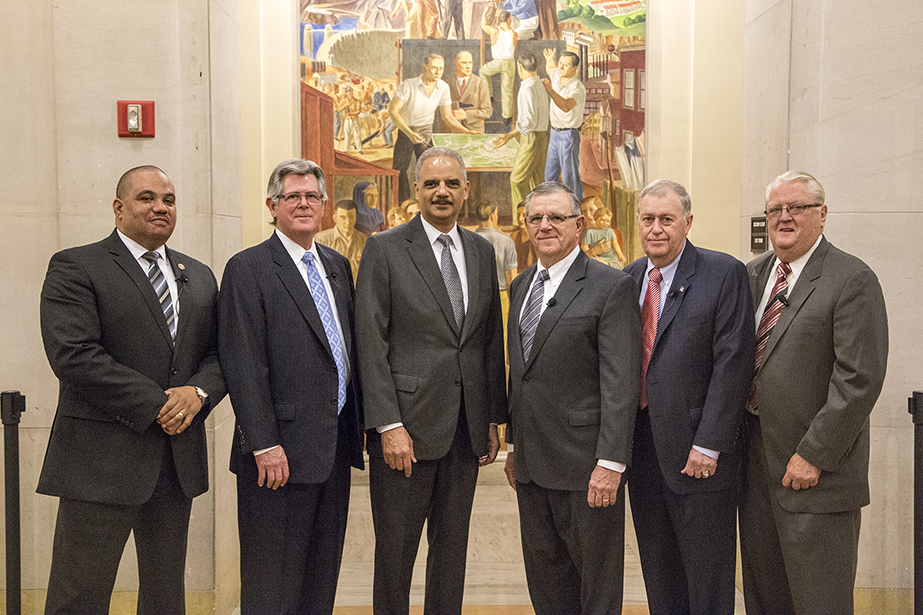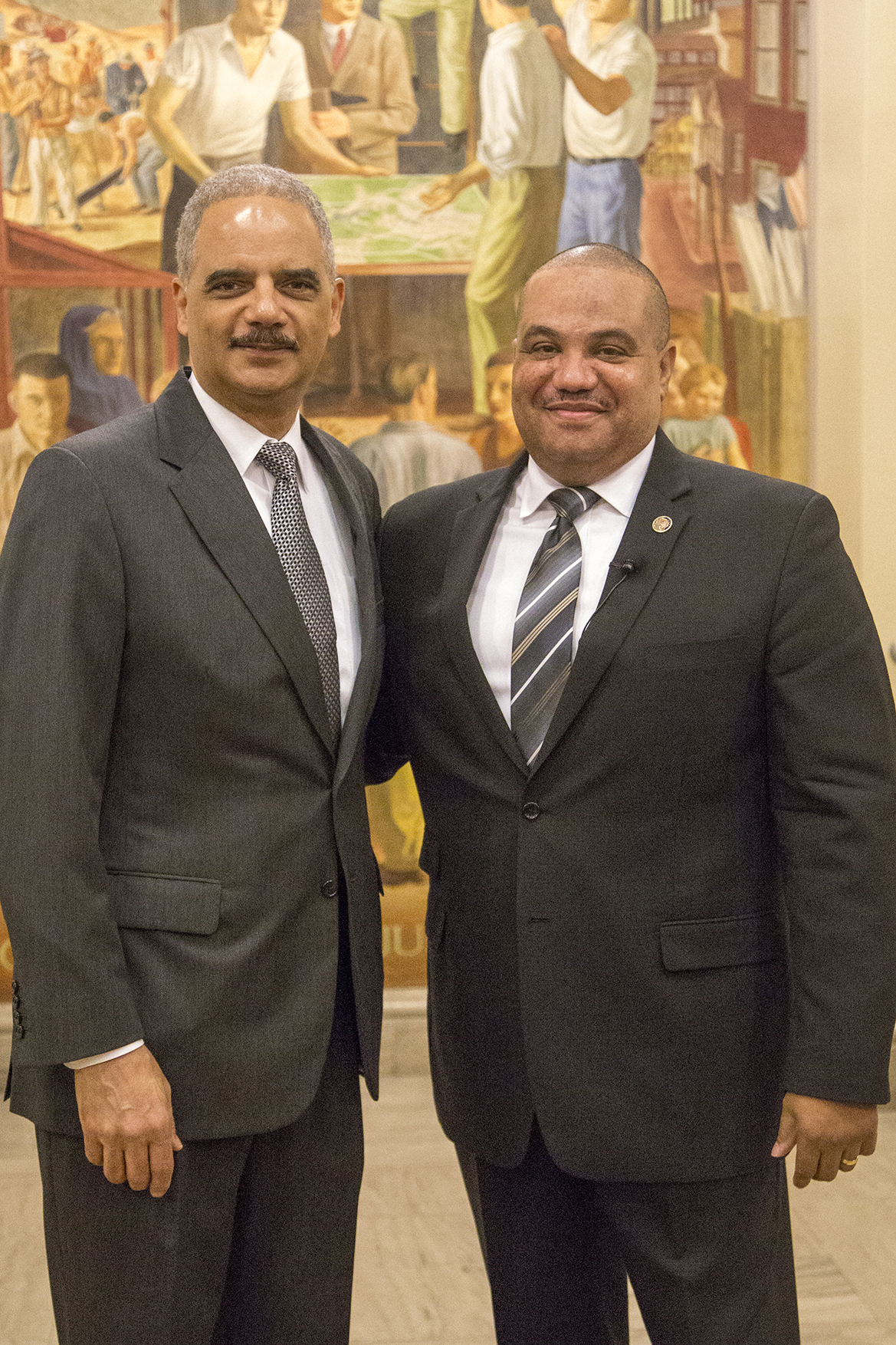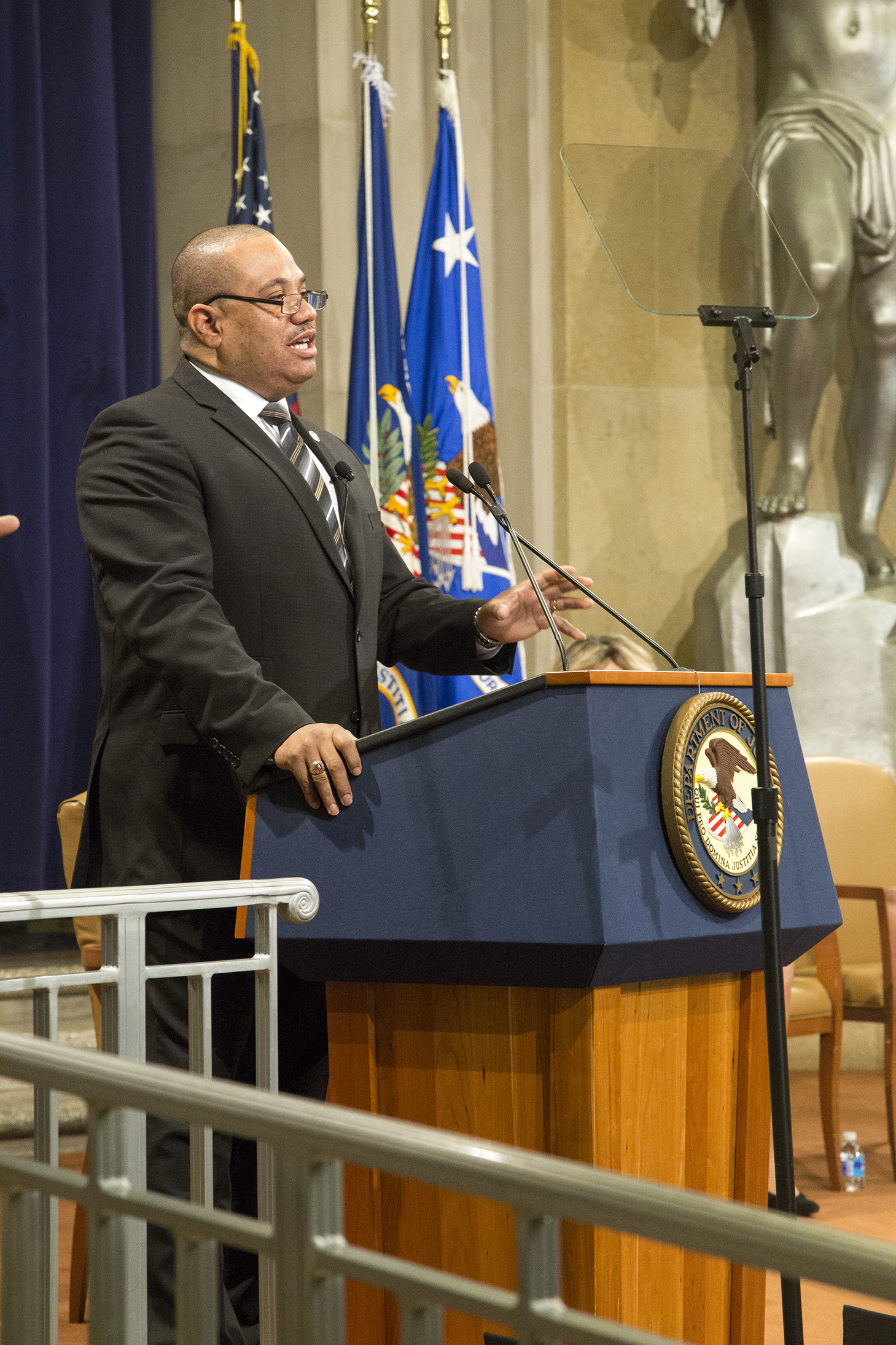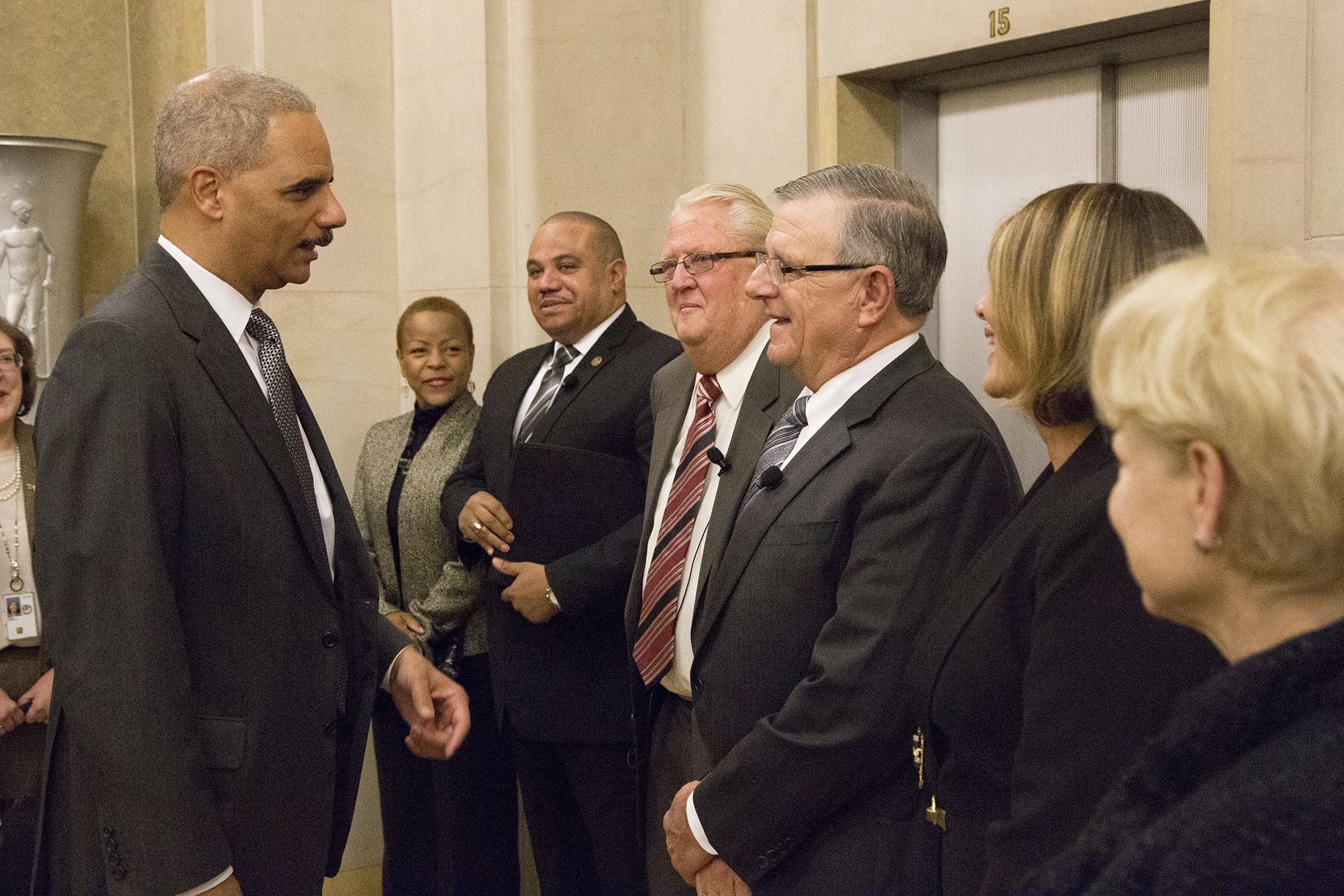Five COPS Office Directors Look Back and Think Forward at the 20th Anniversary Celebration
 On November 12th, 2014, twenty years after President Bill Clinton signed the 1994 Violent Crime and Law Enforcement Act establishing the Office of Community Oriented Policing Services (COPS Office), Attorney General Eric Holder praised the office’s accomplishments in a ceremony marking the anniversary.
On November 12th, 2014, twenty years after President Bill Clinton signed the 1994 Violent Crime and Law Enforcement Act establishing the Office of Community Oriented Policing Services (COPS Office), Attorney General Eric Holder praised the office’s accomplishments in a ceremony marking the anniversary.
Speaking from the dais in the main hall of the Robert F. Kennedy Department of Justice Building in Washington, D.C., Attorney General Holder addressed an audience that included the present and former directors of the COPS Office and leaders from Congress, the U.S. Department of Justice, and law enforcement agencies, as well as COPS Office employees, many of whom have supported the community policing program from its inception.
Remarking upon the fact that both crime and incarceration rates are declining together for the first time in 40 years, the Attorney General said “This is a signal achievement in which everyone here can take tremendous pride. And these promising trends verify what we already know to be true about community policing: that closer community ties and deeper community engagement have the power to reduce crime by building trust, mutual respect, and strong cooperation.”
~ Attorney General Eric Holder
Spirited Discussion and Straightforward Answers
 Following the Attorney General’s address, the four former directors of the COPS Office—Joseph Brann (1994–99), Thomas Frazier (1999–2001), Carl Peed (2001–09), and Bernard Melekian (2009–13)—joined the present director, Ronald L. Davis, in a lively discussion moderated by George Mason Professor and former Assistant Attorney General for the Office of Justice Programs Laurie Robinson.
Following the Attorney General’s address, the four former directors of the COPS Office—Joseph Brann (1994–99), Thomas Frazier (1999–2001), Carl Peed (2001–09), and Bernard Melekian (2009–13)—joined the present director, Ronald L. Davis, in a lively discussion moderated by George Mason Professor and former Assistant Attorney General for the Office of Justice Programs Laurie Robinson.
It was a spirited dialogue, in which the directors forthrightly answered questions on topics such as the commitment to the rule of law and the role of the Federal Government in local policing. On this last topic, Director Davis commented, “There are 13,000 to 17,000 police departments in the United States, some having just two police officers, some with thousands. Our programs allow those small municipalities to train and learn best practices like the bigger ones, which they couldn’t otherwise. We level the playing field. Ferguson’s problems aren’t just in major cities.”
Community Policing and Terrorism
Mr. Frazier added, “We need to leverage the work of the COPS Office to prevent that (Ferguson). Also, you shouldn’t just create a community policing department—every officer needs to be a community police officer.”
Asked to talk about the priorities of his administration, Mr. Peed said, “Terrorism. I started the day before 9/11. When I asked the Attorney General what we could do, he said ‘Keep doing what you’re doing. Community policing is even more important in the 9/11 world.’ We also published a couple of intelligence guides—and got about six thousand requests for copies within a few weeks of their publication.”
From Warriors to Guardians
 Director Davis said that one of his priorities was preparing departments for the next generation of policing. “Some departments are still in the 1960s, with a model based on putting a lot of people in jail, not preventing that,” he said. “We’re working to prepare the next generation to be community police.” Mr. Frazier commented that he too focused on transforming organizations and training the leaders of the future.
Director Davis said that one of his priorities was preparing departments for the next generation of policing. “Some departments are still in the 1960s, with a model based on putting a lot of people in jail, not preventing that,” he said. “We’re working to prepare the next generation to be community police.” Mr. Frazier commented that he too focused on transforming organizations and training the leaders of the future.
Responding to Mr. Frazier’s statement, Ms. Robinson asked the group what the most critical training issues are. Director Davis responded that “New technologies can be taught pretty easily—but it’s the mindset that’s important. We need to teach new recruits that law enforcement is more than just cuffing perps—it’s understanding why people do what they do and knowing what the role of police in a democratic society is.” Mr. Melekian added, “The old warrior model of policing ignored the role of cops as guardians of the community.”
Keeping Idealism Alive
Mr. Peed agreed, adding that there is a disconnect between the philosophy of many police departments and what actually happens in the field. Mr. Melekian noted the discrepancy between the idealism of the young recruits and those who’d been on the force for twenty years, saying, “We should talk about what changes people and why.” Commented Mr. Frazier, “Yes, we have to develop our future leaders. And that’s management’s role.”
When asked about the need for changes in training, Mr. Brann said, “Crime has changed over time. We need to train officers to deal with identity theft, white collar crime, internet terrorism, things that don’t require physical strength. A lot of these jobs can be done by officers who aren’t on the streets. We could hire disabled veterans, for instance.”
A Mission to Be Proud Of
 When the discussion ended, the entire audience stood to clap enthusiastically. Later in the day, the directors attended a reception in the COPS Office, where the staff gave them and Director Davis an enthusiastic welcome—followed by cheers for their colleagues who have worked long and hard to promote the mission of community oriented policing services.
When the discussion ended, the entire audience stood to clap enthusiastically. Later in the day, the directors attended a reception in the COPS Office, where the staff gave them and Director Davis an enthusiastic welcome—followed by cheers for their colleagues who have worked long and hard to promote the mission of community oriented policing services.
Commented former director Frazier, “It’s been great—and it’s the first time all the directors have ever been together in person. I hope it isn’t the last.” The upbeat spirit of the occasion was reflected in the comments of a COPS Office staff member who said, “It’s a job we can all be really proud of doing.”
Faye Elkins
Special Contributor
The COPS Office
January Photo Contest Winner | COPS Office 20th Anniversary | Using GPS as Alarms | Saskatchewan's Crime Reduction Model
